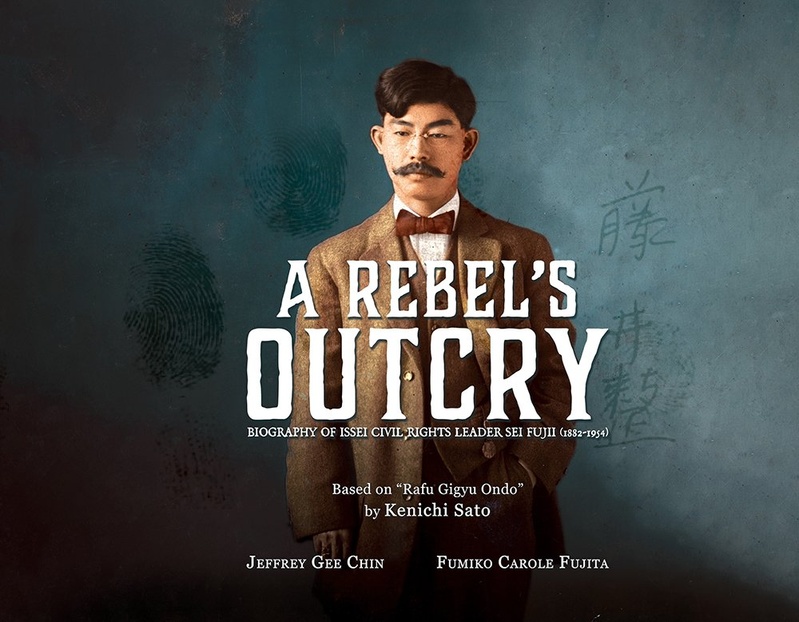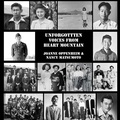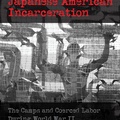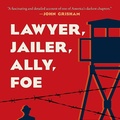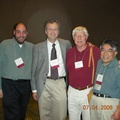Prior to reading this book, my knowledge about prominent Issei lawyer/journalist Sei Fujii derived from two starkly contrasting experiences. The first of these was co-authoring with Ronald Larson a forthcoming published essay entitled DOHO: The Japanese American “Communist” Press, 1937-1942. The second was my viewing of the 30-minute award-winning 2012 film Lil Tokyo Reporter directed by Jeffrey Chin (the co-publisher with Fumiko Carole Fujita of A Rebel’s Outcry) at the Nichi Bei Foundation’s 2016 Films of Remembrance.
Whereas Doho roundly denounced Fujii for packing the pages of his Kashu Mainichi (Japan-California Daily News) newspaper with pro-Japan, anti-democratic “propaganda” glorifying Japanese military victories in the Sino-Japanese War and suppressing Japanese atrocity stories like the Rape of Nanking, Chin’s film depicts Fujii as a courageous and tireless reformer of the quality of community life in Los Angeles’ Little Tokyo, who also greatly expanded the civil rights of all Americans of Japanese ancestry.
A Rebel’s Outcry is silent on the chauvinistic charges leveled by Doho against Fujii. Instead, in this book he is depicted as someone who characteristically assessed matters from an even-handed rational perspective, and an influential person who was simultaneously proud of being both Japanese and American. In this latter vein, he urged American-born generations of Japanese descent to wholeheartedly honor their ancestry as well as their nationality.
The centerpiece of A Rebel’s Outcry is the comparatively short but invaluable biography of Fujii written in Japanese by onetime Kashu Mainichi journalist Kenichi Sato. It was originally published in 1983 under a Japanese title that, as rendered in English, is Los Angeles Rebellious Dance. However, for present purposes in A Rebel’s Outcry, Saeko Higa Dickinson painstakingly translated this entire manuscript into English.
Sato devotes his major attention to several of the many signal accomplishments of Fujii. The first was Fujii’s pivotal role in the 1929 construction in Los Angeles of the Japanese Hospital, which made possible quality health care for the city’s Nikkei population. The second was his 1931 founding of the Kashu Mainichi newspaper, which ostensibly furnished its readers with “a truly conscientious newspaper . . . concerned with ethics and morals” (p. 63).
The third was his two-tiered campaign against the California Alien Land Law, initially through the publication of a brief 1924 book in Japanese that provided pre-World War II Issei farmers with loopholes that would allow them to operate an agricultural business, and later through his resourceful legal efforts to have that shameful law overturned in 1952 for having “violated the U.S. Constitution and the Equal Protection Clause of the California Constitution” (p. 89).
Elegantly designed by Amy Inouye, attractively illustrated by Takashi Uchida, and expertly edited by Naomi Hirahara, the oversized volume under review is further enriched by a plenitude of well-chosen historical photographs and edifying documentary items. The quality of the writing throughout the book is exceptional. Readers are also treated to eight highly useful appendixes, most of which relate to aspects of the different iterations of alien land laws, along with richly developed endnotes, a section on relevant resources categorized by genres, and a comprehensive index.
Far more than the rather melodramatic Lil Tokyo Reporter film that preceded its creation, A Rebel’s Outcry is deserving of accolades. The result of 10 years of research by the Little Tokyo Historical Society, its publication is still another feather in the cap of this resplendent grassroots organization.
A REBEL’S OUTCRY: BIOGRAPHY OF ISSEI CIVIL RIGHTS LEADER SEI FUJII (1882-1954)
By Kenichi Sato
(Los Angeles: Little Tokyo Historical Society, 2021, 231 pp., $60, hard cover)
*This article was originally published in the Nichi Bei Weekly on July 21, 2022.
* * * * *
Author Conversation—A Rebel’s Outcry: Biography of Issei Civil Rights Leader Sei Fuji
Saturday, Sep 3, 2022 from 2 - 3:30pm (PDT)
at Japanese American National Museum (In-person / virtual)
Celebrate the release of the award-winning biography of civil rights leader, Sei Fujii, with a special 10th anniversary screening of the short film Lil Tokyo Reporter and a discussion around the biography. The conversation will include filmmaker and publisher Jeffrey Gee Chin and Academy Award–winner Chris Tashima, with additional guests to be announced. (*This program is presented in partnership with the Little Tokyo Historical Society.)
For more information & RSVP >>
© 2022 Arthur A. Hansen / Nichi Bei weekly



